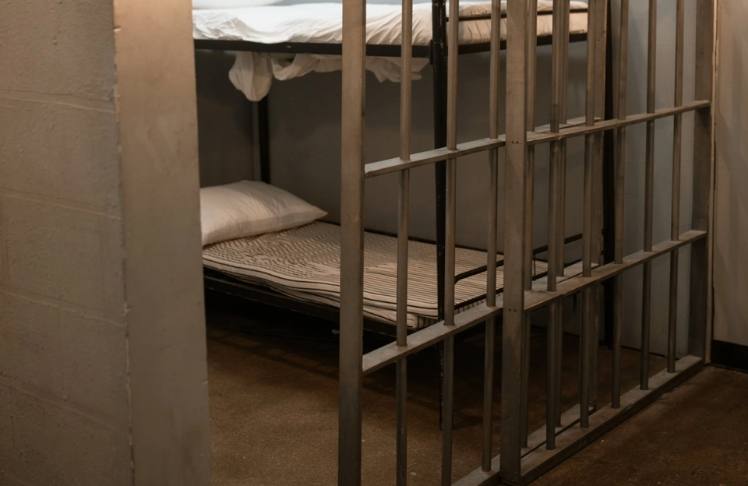
This post was originally published on New York Amsterdam News.
By Tandy Lau
Big things come in small packages—for example, the cost of sending food to incarcerated loved ones in New York after a recently implemented Department of Corrections and Community Supervision (DOCCS) policy. In-person visit deliveries were disallowed earlier this year as a measure to prevent contraband from coming into state prisons. Families now need to go through third-party vendors to send food, often at elevated costs. Statewide rallies last month protested this ban.
“Immigrants who are jailed at the Buffalo Federal Detention Center in Batavia, N.Y. just 45 minutes from us are not allowed any care packages,” said NYIC leader Meghan Maloney de Zaldivar at the Buffalo rally. “The only items they can receive from outside are books, they must be new and directly from the seller. The guards routinely deny books and it seems like each day they have new restrictions.
“The majority of people who are incarcerated long term at Batavia are people who have been impacted by the criminal legal system and face double jeopardy—now jailed in the immigration system.”
Caroline Hansen of the Long Island Social Justice Action Network says the new policy is especially hard as the wife of an incarcerated man serving life without parole. Beyond her work as the organization’s social justice coordinator, she waits tables full-time to support herself and her daughters.
“Before they took away the package ban, we were able to hand deliver two packages per month and they would have to total 35 pounds, so you could bring in anything that was approved, you know, it had to be sealed a certain way,” said Hansen. “But you were able to bring it and I was able to coupon, I was able to go to Walmart, I was able to go to my local grocery store or Costco or BJs and get things that were on sale. Now we have to go through these approved vendors.”
She isn’t shy about how she’s on public assistance. Vendors do not accept food stamps. Hansen says in the past, she could fill a 35 pound package to the brim for roughly $120. She recently paid a third-party vendor $236 to ship 11 pounds of food to her husband, Kristian. In a statement, he said these packages are the regular highlight of his lifetime sentence in Sullivan Correctional Facility.
“I’ve been incarcerated since I was 20 years old and each month my family shares their support and love with a care package for me,” he said. “This ban takes away the only ray of sunshine I have while I’m here. I depend on fresh fruits and vegetables to maintain my health and this will drastically impact my ability to stay healthy as I age.”
Access to healthy food for incarcerated loved ones is one of the primary objectives for the rallies, says Hansen. Her husband only makes $17.11 every two weeks working in prison. And she says his first and fifteenth is actually considered high for someone incarcerated. But if inflation is already bad outside of prison, then costs are skyrocketing inside the commissary. Hansen says a stick of deodorant jumped from roughly $3 to almost $7. A jar of mayo is $4 and a loaf of bread is $5. No financial wizard is going to budget those costs with around $17 a paycheck.
But beyond the costs, there’s sentimental importance to care packages. Hansen’s husband thinks of home whenever he takes a bite out of a Snickers or Three Musketeers chocolate bar mailed through.
“It made me feel good knowing that he had something because he has had everything taken away from him—and rightfully so, people have to pay the price for the crimes they committed, and they need to be held accountable,” said Hansen.
She adds the ban just ultimately doesn’t make sense, although she understands the DOCCS’ need to prevent contraband from coming in.
“I just don’t see what good it does, taking this away, putting more strain on the families out here like myself, who was basically doing my time on the outside,” said Hansen. “I’m barely holding it together for my girls and I, so we really have to get our voices heard, because these men and women have been silenced. And we have to give them a voice.
“We have to stand up for what’s right, for human dignity. And we have to take care of ourselves, the families, and the activists too.”
Tandy Lau is a Report for America corps member and writes about public safety for the Amsterdam News. Your donation to match our RFA grant helps keep him writing stories like this one; please consider making a tax-deductible gift of any amount today by visiting: https://tinyurl.com/fcszwj8w















